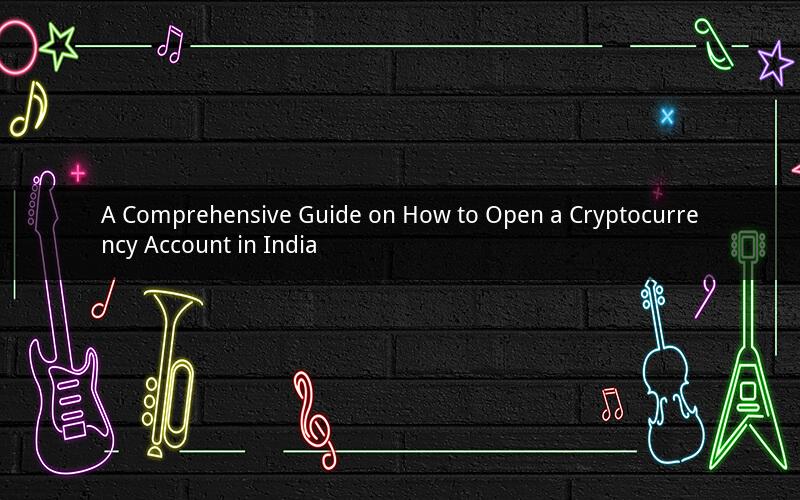
Introduction:
In recent years, the cryptocurrency market has gained significant attention worldwide, and India is no exception. With the increasing popularity of digital currencies like Bitcoin, Ethereum, and others, many individuals are eager to open cryptocurrency accounts in India. However, the process may seem daunting for beginners. In this article, we will provide a step-by-step guide on how to open a cryptocurrency account in India, ensuring a smooth and hassle-free experience.
Step 1: Understand the Legal Landscape
Before diving into the process of opening a cryptocurrency account in India, it is crucial to understand the legal landscape surrounding digital currencies. India has been cautious about cryptocurrencies, and the Reserve Bank of India (RBI) has imposed restrictions on banks and financial institutions from dealing with cryptocurrency exchanges. However, the government has not banned cryptocurrencies entirely, allowing individuals to trade and hold them.
Step 2: Research Reputable Cryptocurrency Exchanges
India has several reputable cryptocurrency exchanges where you can open an account. Some popular exchanges include WazirX, CoinDCX, Zebpay, and Unocoin. Research these exchanges thoroughly to find one that suits your needs, considering factors like fees, security measures, and available cryptocurrencies.
Step 3: Create an Email Account
To open a cryptocurrency account, you will need an email address. If you don't already have one, create a new email account using a reliable email service provider like Gmail or Outlook. Ensure that you use a strong password and enable two-factor authentication for enhanced security.
Step 4: Complete the Registration Process
Once you have chosen a cryptocurrency exchange and created an email account, visit the exchange's website and click on the "Sign Up" or "Register" button. Fill in the required details, such as your name, email address, and phone number. Some exchanges may also ask for additional information, such as your date of birth and address.
Step 5: Verify Your Identity
To comply with anti-money laundering (AML) and know your customer (KYC) regulations, you will need to verify your identity. This process typically involves uploading a government-issued ID, such as your Aadhaar card, PAN card, or passport, along with a recent photograph. The exchange will verify these documents and may ask for additional verification if needed.
Step 6: Set Up Two-Factor Authentication (2FA)
Two-factor authentication adds an extra layer of security to your cryptocurrency account. Enable 2FA by following the instructions provided by the exchange. This usually involves installing an authenticator app on your smartphone and scanning a QR code or entering a verification code generated by the app.
Step 7: Deposit Funds
Once your account is verified and 2FA is enabled, you can deposit funds into your cryptocurrency account. Most exchanges offer various deposit methods, including bank transfers, credit/debit cards, and UPI payments. Choose the method that suits you best and follow the instructions to deposit funds.
Step 8: Buy Cryptocurrencies
With funds in your account, you can now start buying cryptocurrencies. Select the cryptocurrency you want to purchase, specify the amount, and confirm the transaction. The exchange will execute the trade, and the purchased cryptocurrency will be credited to your account.
Step 9: Store Your Cryptocurrencies Securely
It is crucial to store your cryptocurrencies securely to prevent loss or theft. While exchanges offer wallet services, it is recommended to use hardware wallets or software wallets with strong security measures. Transfer your cryptocurrencies to these wallets for long-term storage.
Step 10: Stay Informed and Educated
The cryptocurrency market is highly volatile, and staying informed is essential. Keep yourself updated with the latest news, trends, and regulatory developments. Additionally, educate yourself about different cryptocurrencies, their use cases, and investment strategies.
Questions and Answers:
1. Q: Can I open a cryptocurrency account in India without any verification?
A: No, most reputable cryptocurrency exchanges in India require identity verification to comply with AML and KYC regulations.
2. Q: Are there any tax implications of owning cryptocurrencies in India?
A: Yes, cryptocurrencies are considered as an asset in India, and any gains or losses from trading cryptocurrencies are subject to tax. It is advisable to consult a tax professional for accurate guidance.
3. Q: Can I withdraw my cryptocurrencies from an Indian exchange to an international wallet?
A: Yes, you can withdraw your cryptocurrencies from an Indian exchange to an international wallet. However, ensure that the wallet supports the specific cryptocurrency you wish to withdraw.
4. Q: Are there any risks associated with opening a cryptocurrency account?
A: Yes, there are risks involved in the cryptocurrency market, including market volatility, security breaches, and regulatory changes. It is crucial to conduct thorough research and exercise caution when investing in cryptocurrencies.
5. Q: Can I trade cryptocurrencies on a mobile app?
A: Yes, most cryptocurrency exchanges offer mobile apps for iOS and Android devices. These apps provide a convenient way to trade, monitor your portfolio, and stay updated on market trends.